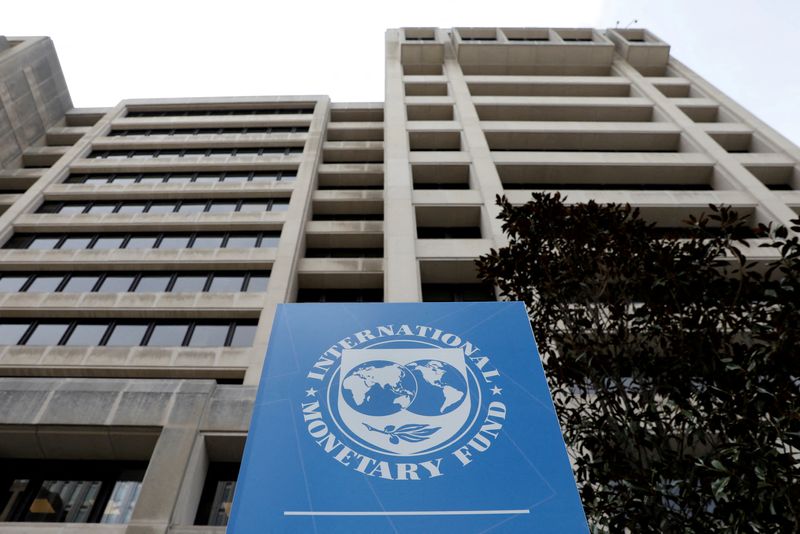By David Lawder
WASHINGTON (Reuters) -The U.S. Treasury's top economic diplomat on Friday called on the International Monetary Fund and multilateral development banks to work on new ways to provide short-term liquidity support to low- and middle-income countries to head off debt crises.
Jay Shambaugh, the Treasury's undersecretary for international finance, told an Atlantic Council event that the Treasury was working with these institutions "to find a better path" for countries with high but sustainable debts that face liquidity pressures.
Shambaugh, who oversees the dominant U.S. shareholdings in the IMF and World Bank, said he hoped that the institutions could make progress at their annual meetings later this month in developing new mechanisms and program design changes that meet the needs of a vast number of countries dealing with temporary shocks.
Low-income countries’ average annual spending on debt service has jumped to $60 billion from about $20 billion between 2010 and 2020, which could put the global debt architecture under "significant strain" as some countries face significant principal repayments in coming months, Shambaugh said.
"If you are a country committed to sustainable development and if you are willing to engage with the IMF and MDBs to unlock significant financing alongside significant reform measures, there needs to be a financing package from bilateral, multilateral, and private sector sources to bridge your liquidity needs in a way that is supportive of your sustainable long-run development," Shambaugh said.
The plan "will require hard work and innovation" at the international financial institutions, he said, adding that they will need to design their lending and reform programs in a way that avoids having temporary fiscal adjustments lead to permanent harm due to cuts to important investments, such as for infrastructure.
CHINA CRITICISM
Shambaugh also continued his criticism of China's economic policies, including recent steps by Beijing to direct more subsidies to manufacturing investments despite producing a third of the world's manufactured goods. He said the strategy would cause export spillovers to other countries and is "unlikely to be successful" in the absence of domestic demand.
"By focusing on manufacturing via nonmarket tools and subsidies despite China’s already outsized role, this also means China may be closing what has been a typical development path to many other countries eyeing low-cost manufacturing as the next stage of their development," Shambaugh said. "And by channeling the saving to particular sectors, this increases the likelihood of overcapacity and spillovers to other countries."

Shambaugh said that the IMF needs to pay more attention to the source of China's external surpluses and the role of industrial policy. The comments echoed those of another Treasury official, Brent Neiman, who said last week that the IMF was "too polite" in assessing China's economic policies.
Shambaugh said he was "encouraged" by new stimulus measures announced by China's central bank, but said Beijing needs to include more fiscal policy stimulus to shift spending to households.